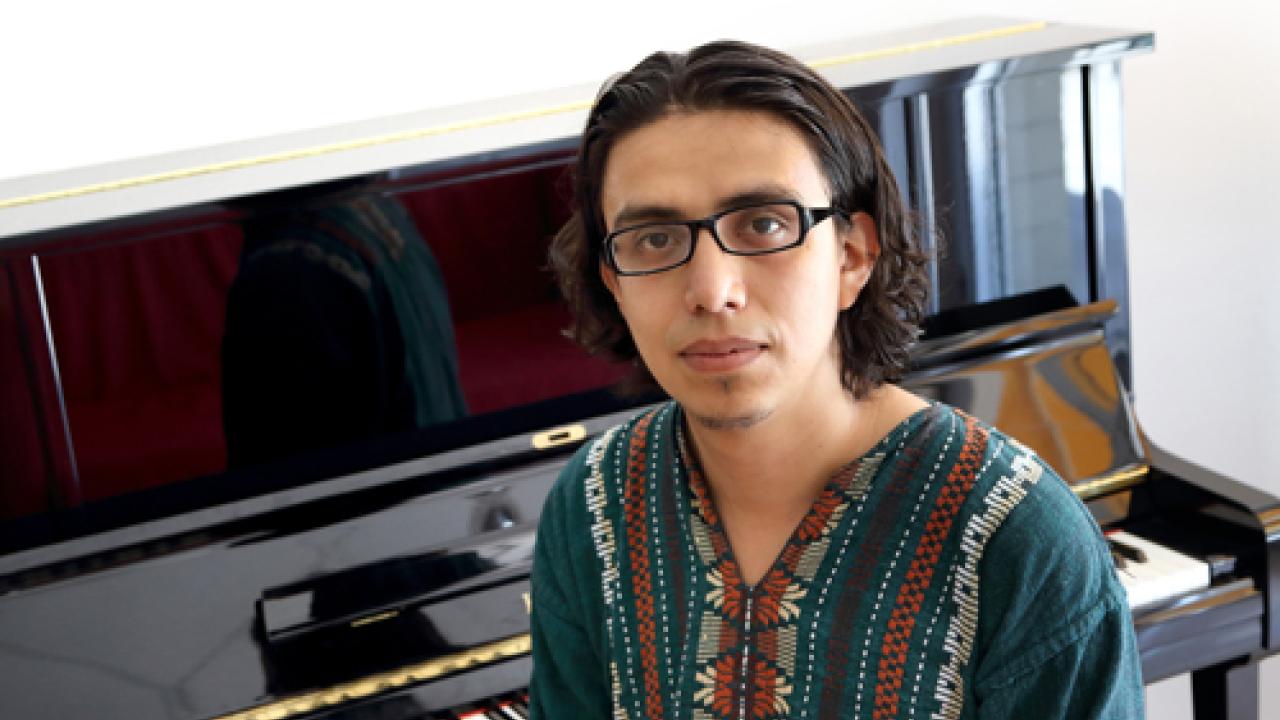
Music and physics make close companions. They share a vocabulary--balance, symmetry, time, resonance--and both strive to make order, sense and connections between past, present and future events. The similarities are perhaps most obvious to those who have a foot in both camps, such as ICTP Postgraduate Diploma student Rodrigo de Leon Ardon, an accomplished piano player who also studies the structure of the universe. Rodrigo, who's from Guatemala, recently completed ICTP's intense, one-year course of study in high energy physics and has been accepted into the astroparticle physics doctoral programme at the International School for Advanced Studies (SISSA) in Trieste.
Guatemala has a rich history and culture of music dating back to Mayan times, so it is no surprise that this future physicist had a predilection for chords and claviers. How Rodrigo's interest led to a fascination with the universe is a story that flows as melodically as the Latin folklore music he adores.
"It all started with music," Rodrigo explains. "I was in love with music, and at some point I became interested in the instrument itself--I was playing an electronic keyboard. So the first step was electronics. I went to a technical high school, and there I learned the basics."
Rodrigo continued to study the field at university. However, a course on the fundamentals of electronics sparked an interest in physics. His thoughts soon turned to the universe, and his hunger to learn more about the phenomenon behind the Big Bang and the formation of galaxies led him to ICTP. For the past year, Rodrigo has studied these and other topics under the guidance of ICTP cosmologist Paolo Creminelli, culminating in a thesis on large-scale structure of the universe. True to his musical roots, Rodrigo is quick to point out the structural parallels between the universe and musical instruments. "Basically you have a fluid and a perturbation at the beginning, and since the universe is expanding you produce all these large scales, and I cannot avoid thinking of it as an instrument. The same equations that describe how a musical instrument works also describe the structure of the universe," he explains.
While Latin American folklore composers such as Violeta Parra and Chango Spasiuk have influenced his musical tastes, Rodrigo credits two Guatemalan scientists with inspiring him to further his physics studies. One was the supervisor he had as a student in Guatemala, Edgar Cifuentes; the other is ICTP Director Fernando Quevedo, whom he first met two years ago when he attended an ICTP summer school. Cifuentes and Quevedo have been strong role models for a country that spends only 0.05 % of its GDP on research and development and that until recently had no doctoral-level programme in physics. Rodrigo points to Quevedo's high profile as director of an international physics institute as an invaluable contribution to science development in his home country. "Professor Quevedo knows the conditions in Guatemala and he is working to overcome the issues," he explains, adding, "There's a lot of work to be done but we need the support of the world."
After he finishes his doctoral studies, Rodrigo intends to do his part too. "I must share all the things I have learned with my country, this is important; if I don't, my country will remain in poverty," he says.
--Mary Ann Williams
















